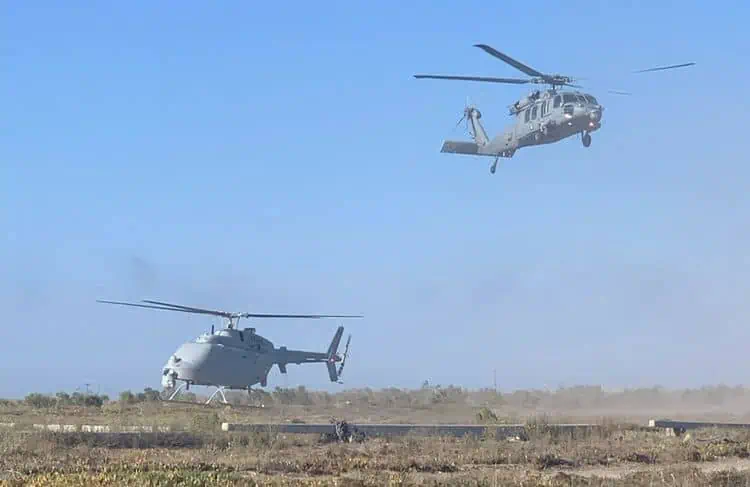
Northrop Grumman Corporation’s MQ-8C Fire Scout, the U.S. Navy’s autonomous, unmanned helicopter system, has successfully completed operations under the Expeditionary Advance Base Operations (EABO) concept, providing persistent intelligence, surveillance, reconnaissance and targeting (ISR&T) capabilities.
“Fire Scout is the Navy’s only unmanned helicopter with the ability to deploy from a ship or land with ISR&T at the extended range required for future warfighting,” said Capt. Dennis Monagle, U.S. Navy. “The system is vital in expeditionary use for situational awareness and critical decision-making.”
MQ-8C Fire Scout was launched from the Vertical Take-Off and Landing Tactical Unmanned Air Vehicle Maintenance Detachment at Naval Base Ventura County in Point Mugu, California, simulating a ship-based departure. The Navy conducted a control system hand-off of the MQ-8C Fire Scout from Point Mugu to San Clemente Island, California, demonstrating the ship-to-shore transition capability of the platform in a maritime expeditionary environment.
With the Navy’s Portable Mission Control Station (MCS-P), the system was recovered and redeployed rapidly for operational flexibility. The portable MCS-P ground control station helps MQ-8C Fire Scout basing in austere locations on land, helipad operations in an advanced forward location, and logistics support from ship flight decks. With identical ship-based hardware, screen configuration and software, operations remain consistent across all ship classes.
“We are supporting MQ-8C deployments on littoral combat ships while assisting the Navy with Fire Scout mission expansion efforts to include operations from other surface ships and shore-based sites,” said Lance Eischeid, director, Fire Scout program, Northrop Grumman. “This EABO demonstration further proves the flexible utility of Fire Scout for expeditionary use from land and across multiple ship classes.”
Find suppliers & manufacturers of Unmanned Helicopters & Single Rotor Drones >>


















